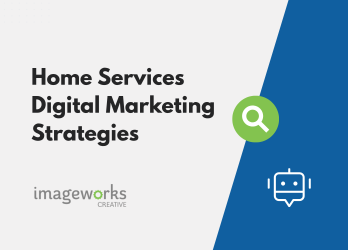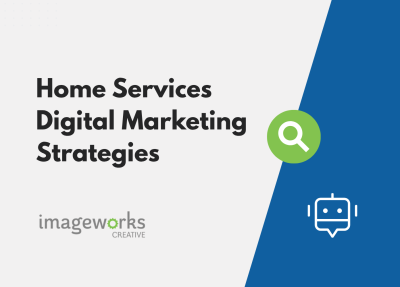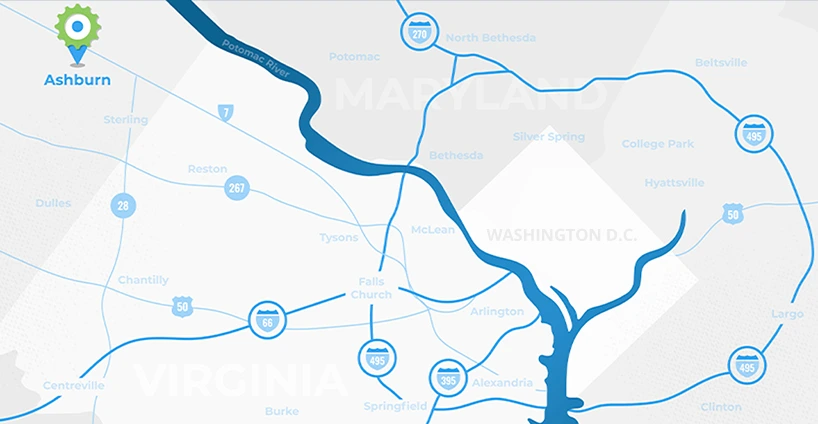7 things your homepage is doing wrong – and all the tools you need to fix them!
You don’t have to be a designer to recognize really terrible web design. Flashing lights, mismatched colors, text too small to read (or too big to fit in one screen) … these are things that make even the least artistic visitors cringe and click away.
But good web design requires more than just avoiding bad design. In fact, things that may seem perfectly acceptable to the untrained eye may actually be hurting your site and driving your visitors straight into the arms of your competition.
Today, we’re going to look at homepage elements only since that’s where most of your customers enter your site (and where many of them will leave, if you’re making these common mistakes).
#1: We don’t have all day. As you work to compile a website that is visually stunning, interactive enough to engage your visitors, and technically impressive, you may have forgotten all about timing. If your website takes too long to load, your visitors won’t even make it past the first laborious image before they click away. A slow site can also hurt your rankings on Google; page load time is one of many on-page ranking factors that Google uses to determine whether a website should show up at the top of its search results.
Fix it: First, run your website through a free page speed testing service like Google’s own. If you don’t pass with flying colors, you’ll receive tips on how to reduce your load times and improve the search engine’s impression of your site. Focus on the issues that are highlighted in red since those will have the biggest impact on your success, but make a plan to address the other suggestions, too.
#2: You let the music play. People use their computers in so many different places – coffee shops, busy offices, at home on the couch while also watching television, while riding public transportation, etc. Most of us have gotten into the habit of muting our speakers, but when we haven’t, we don’t like being startled (and embarrassed) when music starts blaring out from a new webpage. Once that happens, we aren’t looking for the itty-bitty button that will allow us to mute your site. We’re clicking “back” as fast as we can, and we’re not going to give you another chance to foist your noises on our unsuspecting ears.
Fix it: If you feel like the audio you’re playing really adds to the user experience (we’re betting it doesn’t!), make it optional. Give visitors the option to click to play sound if you must, but otherwise – just get rid of it. It’s an easy fix, and it will make for a much more pleasant experience for your users.
#3: We just got here and already we’re lost. Arguably, the single most important feature of a website is its navigation. Whether people are looking for information or browsing to make a purchase, it’s important that you tell them where to go to find what they need. If your navigation is confusing or unclear, your visitors will become lost or frustrated.
Fix it: Think about where you want your visitors to go (this is known as the sales funnel) and what they need from your site. Your navigation options should be clearly labeled, easy to find, and ordered sensibly. As a business owner, you may be too close to the project to see through your visitors’ eyes. Consider getting a User Experience Review from a design company or asking people outside of your company to review the site and provide feedback about the navigation.
#4: You’re trying to be the next Walt Disney. HTML Animations are a great way to bring your site to life and engage your visitors, but you aren’t working for Pixar! A handful of smoothly executed animations can add to your user experience, but too many will slow down your site and distract your visitors from what you really have to offer.
Fix it: Take a critical look at your site and ask yourself, “what does this animation add to my presentation?” It’s great to showcase your creativity and give visitors a way to engage with your content, but don’t be afraid to remove animations that go overboard. That will speed up your site and make sure that users are having the kind of experience you want them to have.
#5: We’ve gotta wear shades. Picking the colors for your site based on your CEO’s favorite palette is probably a bad idea. Very few companies can justify using a rainbow of color on their sites, and those that do still need to be careful about how they execute their designs. If you’re blinding your visitors, they aren’t going to find what they need, and they aren’t going to think well of your brand, either.
Fix it: Color theory is a science, and we don’t expect everyone to grasp it immediately. This article offers a few tips for getting started, but when in doubt, consult a design professional. They can help you transform a blinding site into a branded beauty in no time!
#6: You came on too strong. We arrived on your homepage looking for information only to be confronted with a pop-up box begging us to sign up for your newsletter, streaming banners advertising “great deals,” and an automated chat box taking over another corner of the page. While none of these things are automatically bad, it’s important not to go overboard. We know you’re a business, but we don’t want to feel like you’re giving us the hard sell on a used car lot.
Fix it: Think of these features like fine cologne. We love the subtle smell of it, but if you bathe in it and sit next to us in a theatre, we’re going to hate everything about you. So, if you use a pop-up to collect information from your visitors (we do!), make sure that it’s easy for them to close the box and return to your site. No one wants to feel like they’re being forced to sign up for something, and visitors who can’t easily close your pop-up are likely to leave without giving you another look. Tone down your banner ads, too. If someone is interested enough to visit your site, a clear and compelling call to action should get them into your funnel without making them feel badgered or bullied.
#7: We never got to know you. It’s 2015, and storytelling is a huge part of branding. If you aren’t sharing your story on your homepage, you may lose customers to companies that have put more time and effort into branding themselves.
Fix it: Don’t be shy! Your customers want to know who you are and what they can expect from you. Have you been in business since your ancestors came over on the Mayflower? Do you love cats so much it makes you cry? Did you ever spend an entire weekend researching the best cheese to serve on a first date? Was your company founded by a collective of mimes? Something makes you unique, and that’s the perfect starting point for your story.
Confused? Offended? Tell us about it. It’s our business to make your business look good!










